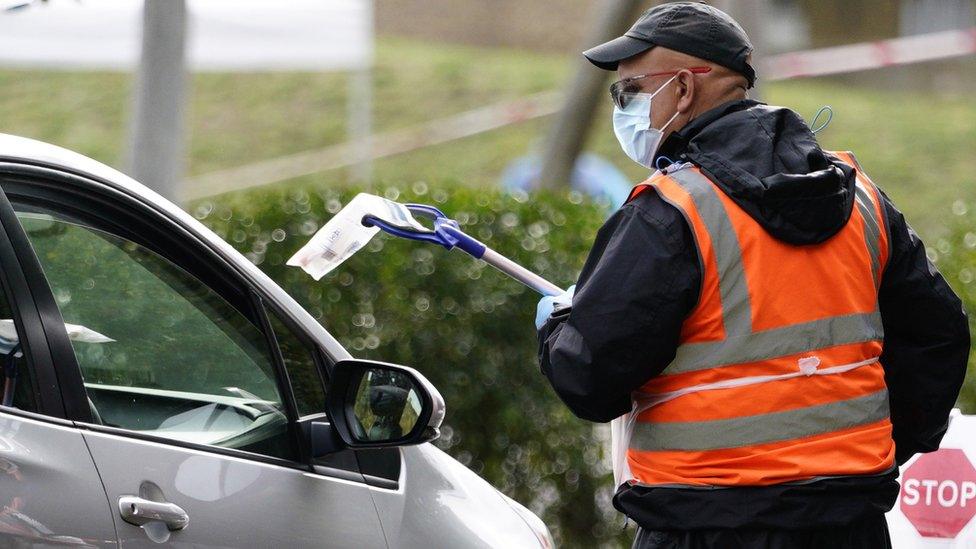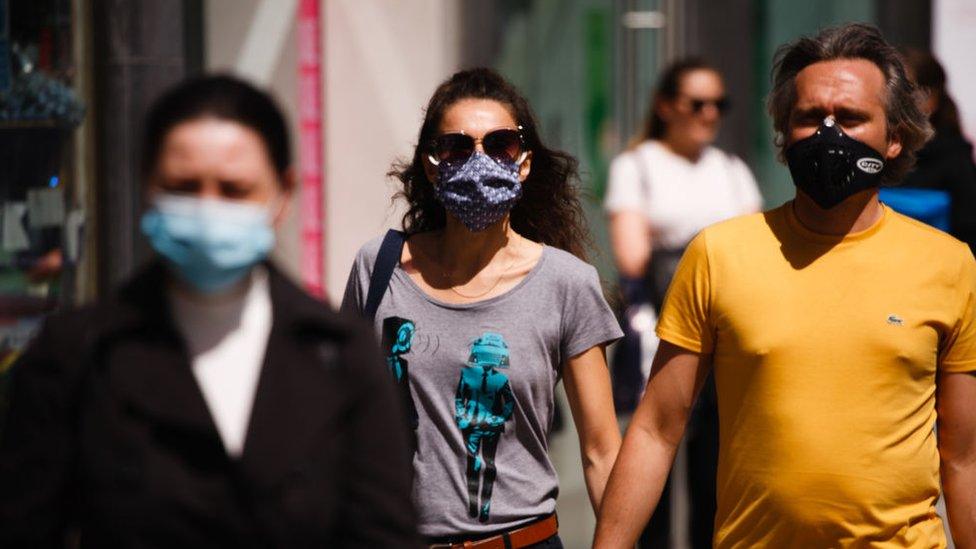Covid: Pandemic 'exposes' UK security planning gaps
- Published

The Covid pandemic has exposed "profound shortcomings" in the UK's oversight of national security, a parliamentary report has said.
The Joint Committee on the National Security Strategy said problems the UK has faced reflect gaps in the planning and preparation for biological risks.
A pandemic has been categorised among the highest security risks since 2010.
But the report, external says the only major planning exercise in the last decade left some critical areas untested.
The MPs and peers on the committee added that local authorities and emergency responders have sometimes lacked the intelligence and support they need from central government to carry out their role in biological security effectively.
Insufficient attention had also been paid to areas like detection, they say.
The UK's preparations for a significant disease outbreak had mainly focused on a flu pandemic.
But the report says the "novel features of Covid-19", such as its high level of infectiousness compared with the flu, do not fully explain the government's "inadequate response".
"Insufficient attention was paid to important capabilities," they said, in areas including testing, isolation and contact-tracing capabilities.
They say the pandemic also exposed vulnerabilities in the supply of personal protective equipment and in tackling false or misleading information online.


When the UK first published its list of top tier security threats a decade ago, a pandemic was there as part of the category covering a major accident or natural hazard.
But compared with the other three big risks listed - terrorism, cyber-attack and a major military crisis - there is no doubt that it received less attention and funding.
Counter-terrorism scenarios are exercised regularly, the military - despite battles over budget - receives plenty of attention and cyber-security has risen up the agenda rapidly in the last decade, including with the creation of a new National Cyber Security Centre.
But natural hazards, and particularly bio-security, have felt more like the poor relation and this report argues the pandemic exposed those failings.


LOCKDOWN LOOK-UP: The rules in your area
THREE TIERS: How will the system work?
TESTING: How do I get a virus test?
GLOBAL SPREAD: How many worldwide cases are there?
EPIDEMIC v PANDEMIC: What's the difference?

The committee calls for a minister to report annually to Parliament on the state of national preparedness for all top-tier risks, regular exercises to prepare for them and a task force to focus specifically on biological security.
The chair of the committee, Dame Margaret Beckett, said "the pandemic in the UK was not unpredicted... it is clear that the government could have, and should have, done more to prepare".
She added: "Its negligence of key capabilities led to unnecessary fumbling for solutions, when instead the country needed decisive action.
"The government at times seems to have treated a vaccine as a 'fix-all', with little pre-consideration of our capabilities for detecting where the virus is and bringing cases under control."
Related topics
- Published8 July 2020

- Published3 November 2020